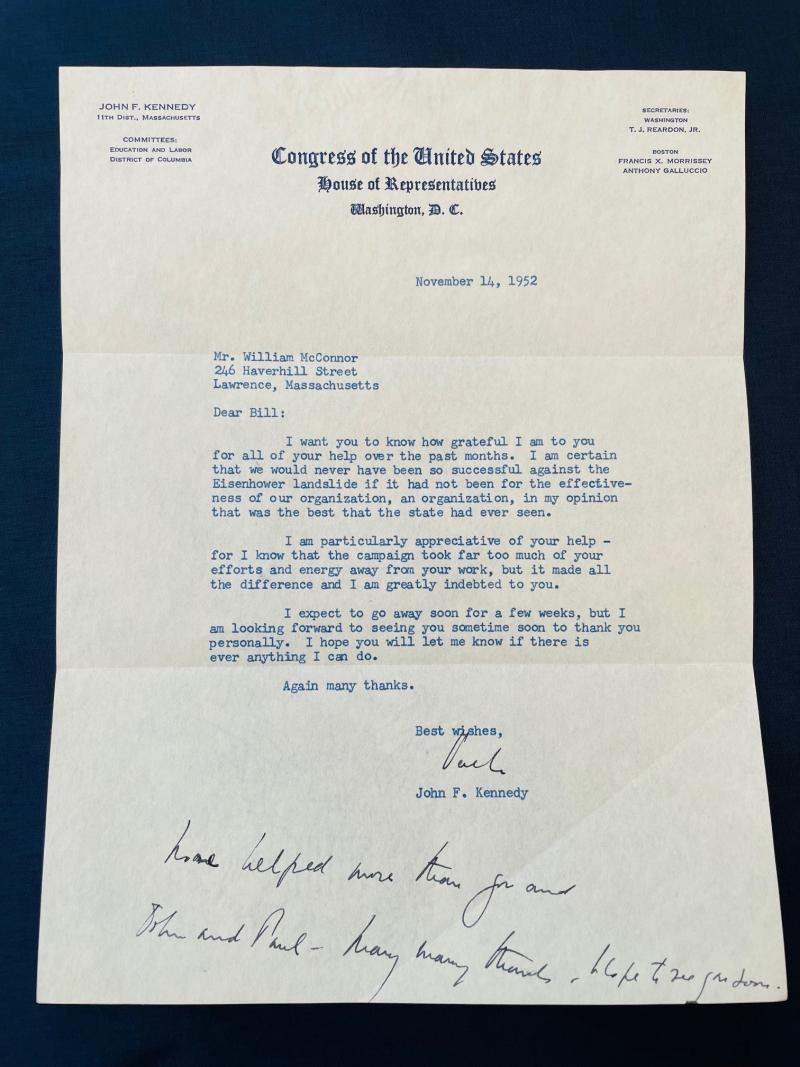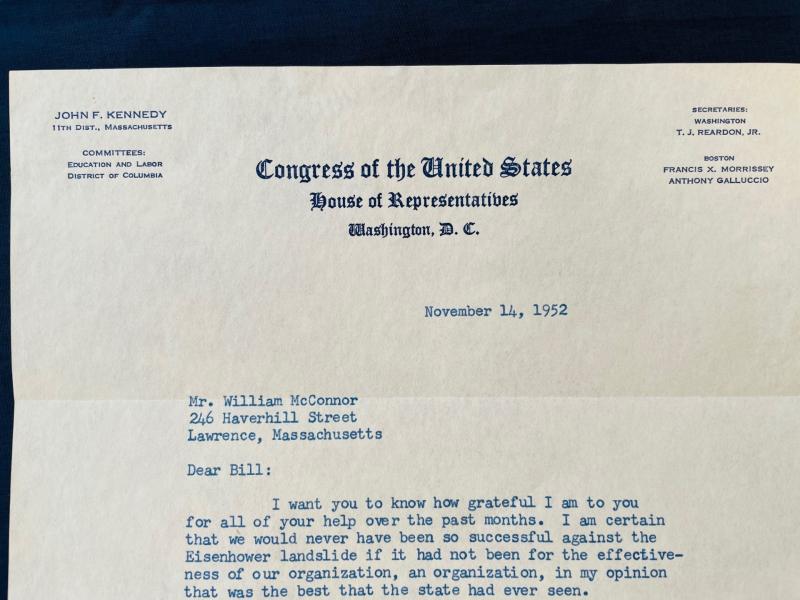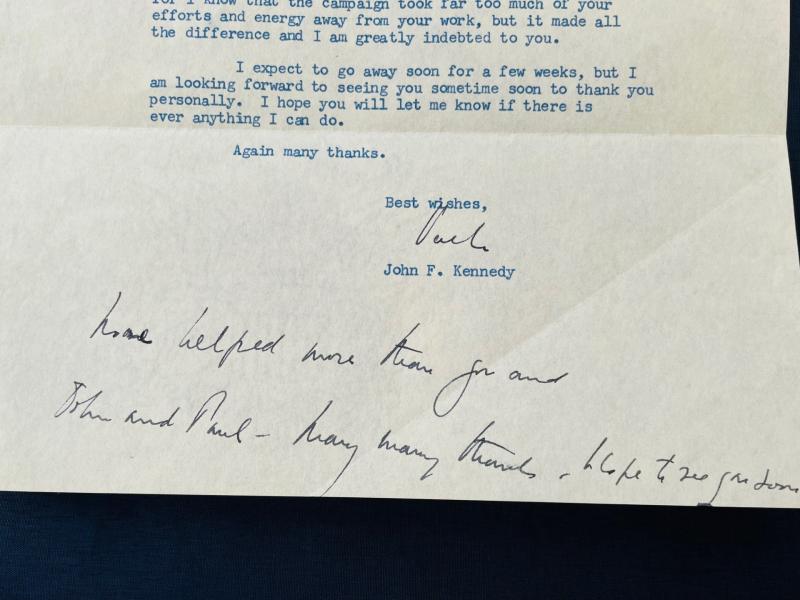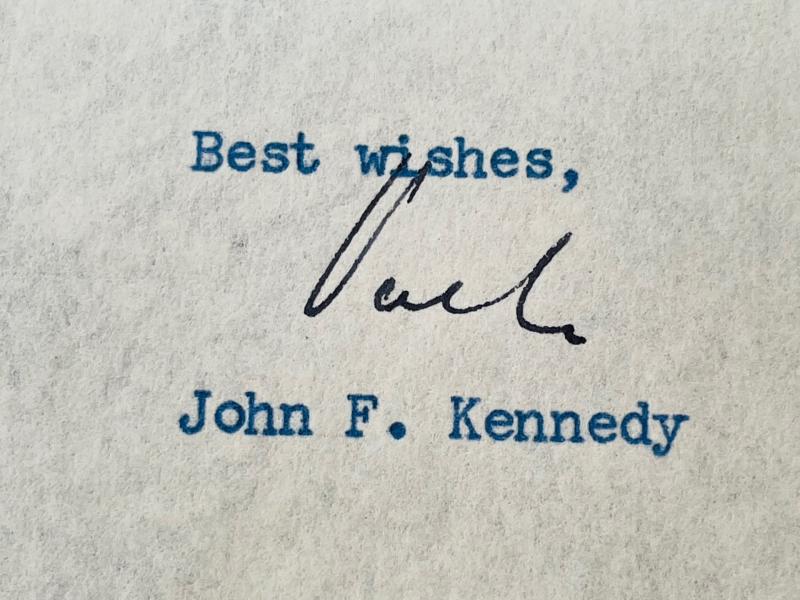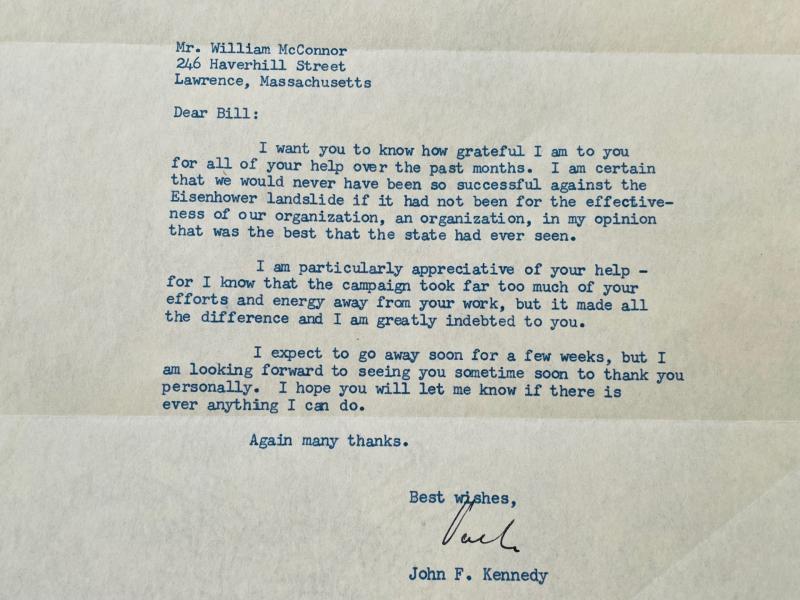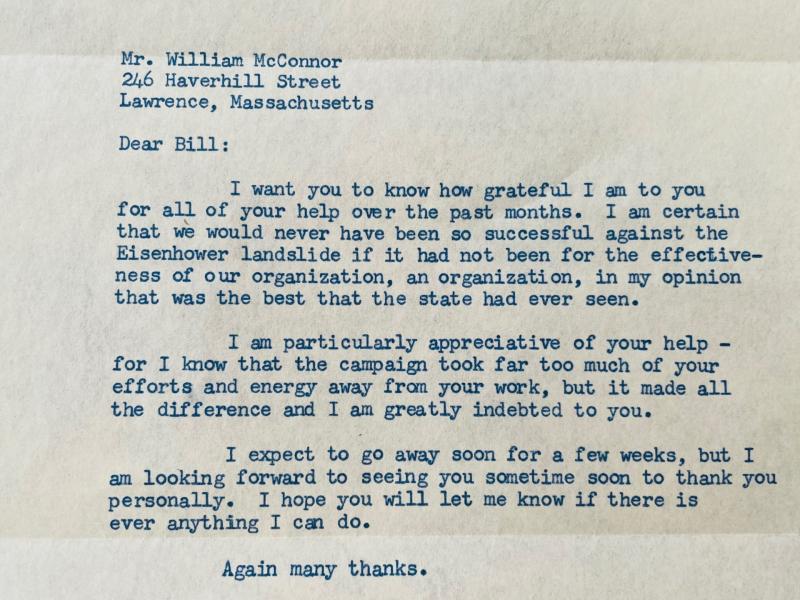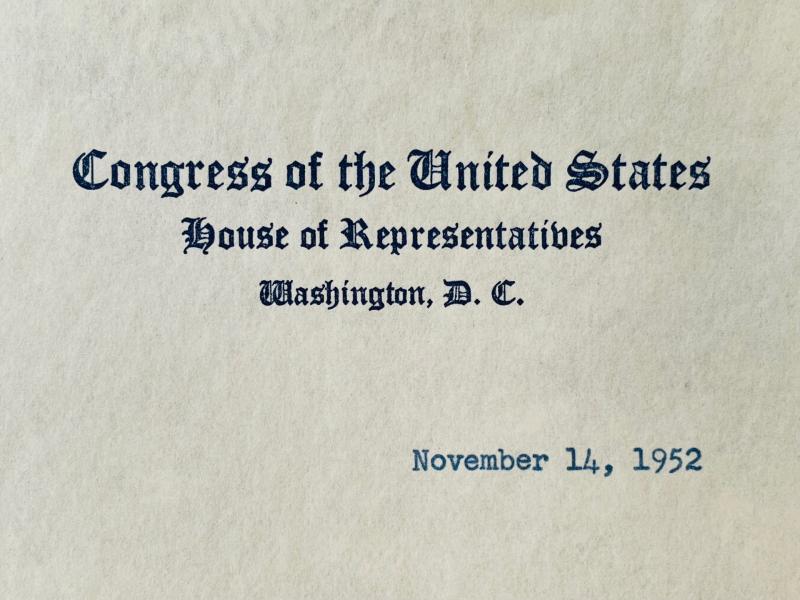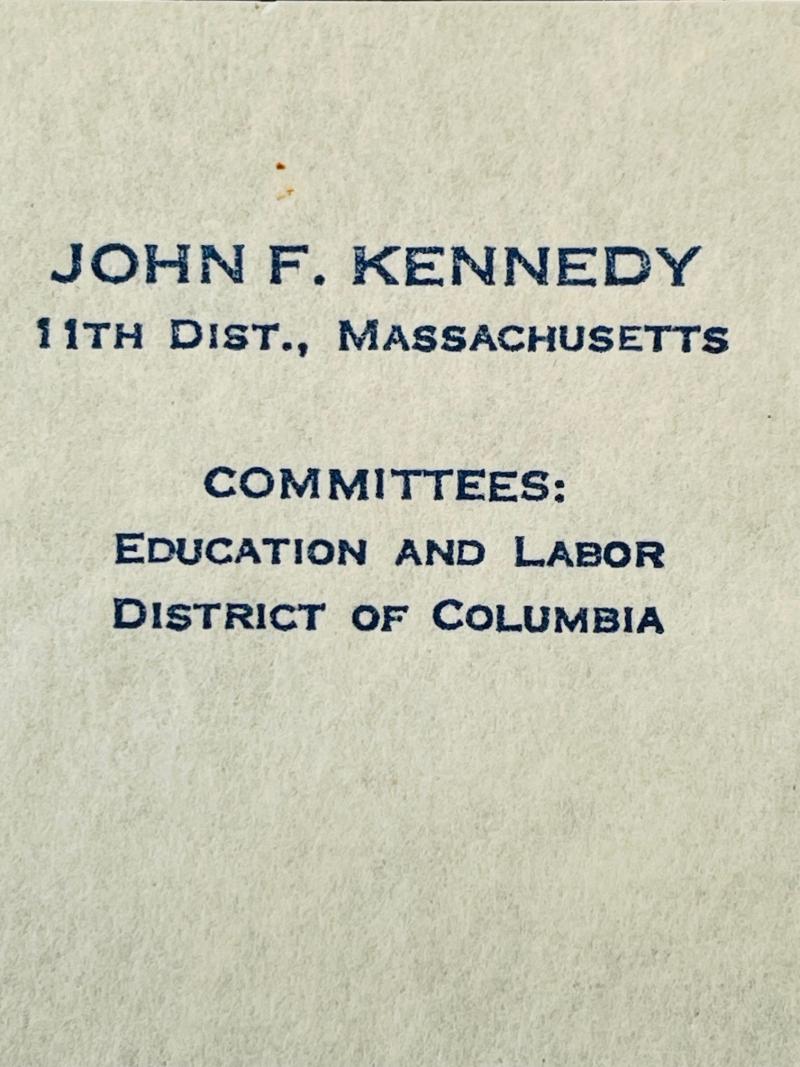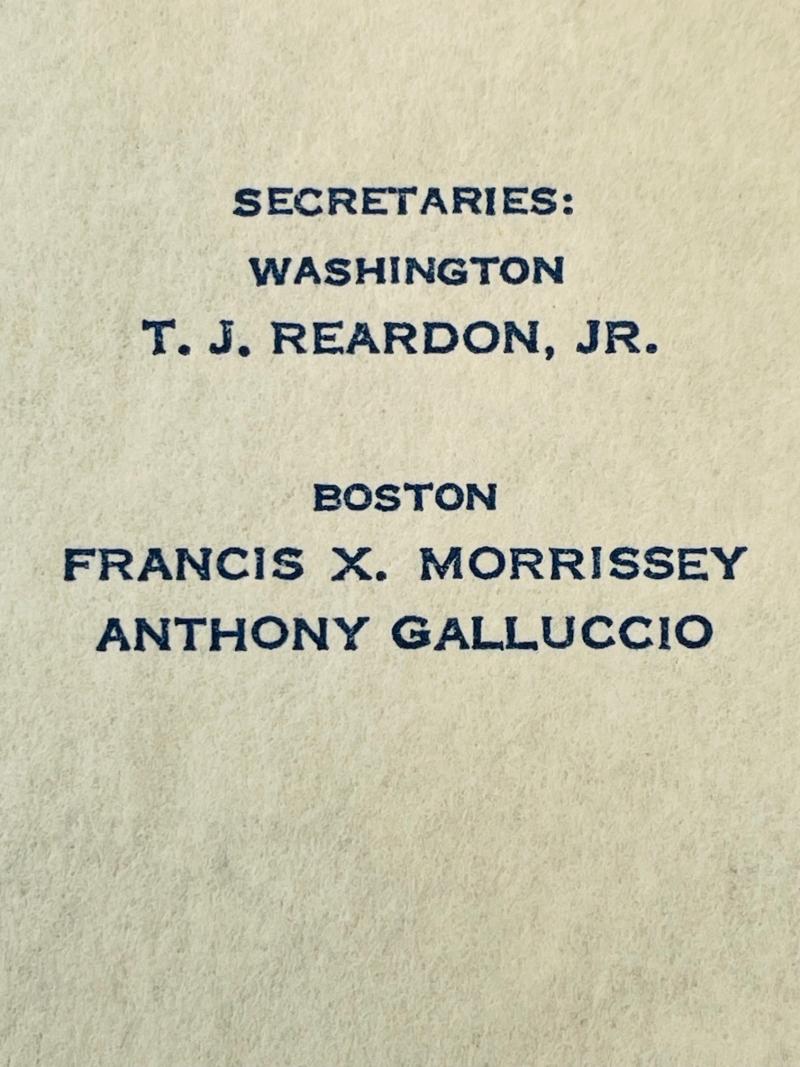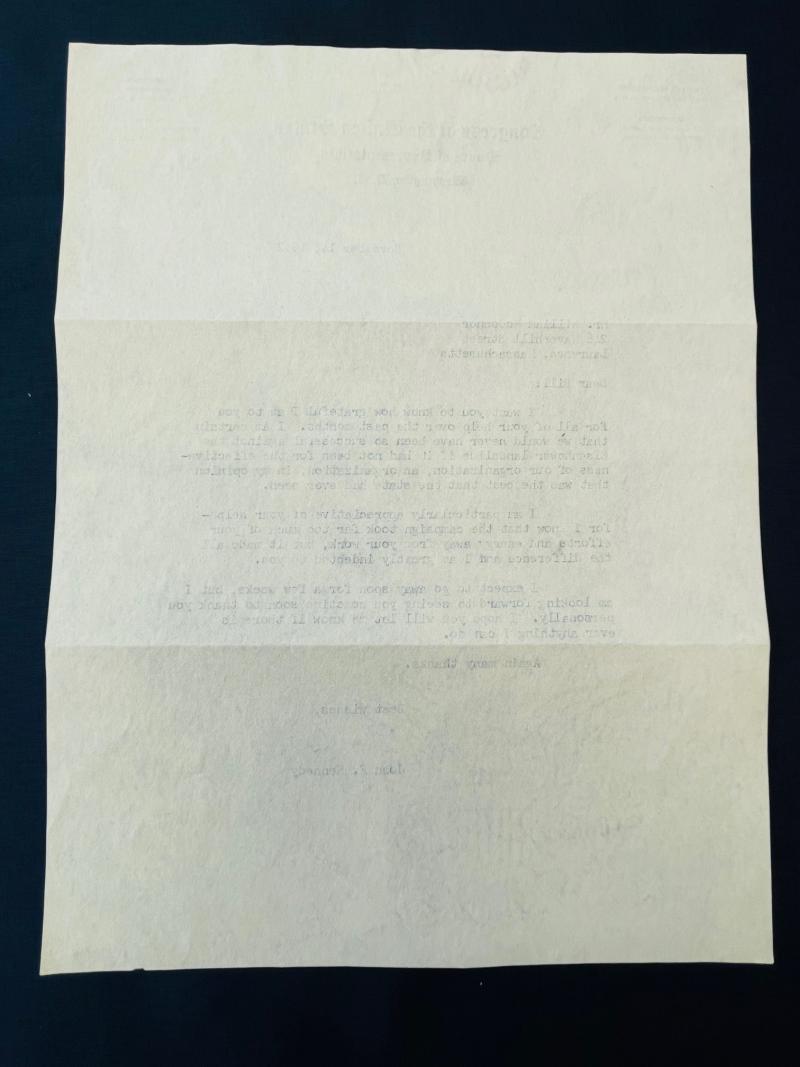RARE JOHN F KENNEDY AUTOGRAPHED LETTER HAND SIGNED & INSCRIPED.
Wonderful authentic original JFK AUTOGRAPH letter. A blue inked typed letter which is hand signed in ink ( jack ) and dated November 14, 1952 also with an hand ink inscription by John F Kennedy .(prior to becoming the 35th president of the United States of America) on Congress of the United States, House of Representatives headed paper, 1p., 26.5cm x 20cm, the letter thanking the recipient William McConnor for his help in the campaign ‘I am certain that we would never have been so successful against the Eisenhower landslide if it had not been for the effectiveness of your organisation’, signed ( jack ) with additional handwritten postscript in JFK hand ‘Noone helped more than you and John and Paul, Many many thanks, I hope to see you soon. The letter is in fine condition with the signature and inscription very clear. A Totally original authentic letter hand signed and inscribed by John F Kennedy, please note that the photographs of John. F. Kennedy does not come with the sale of the autographed letter and is for reference purposes only.
John Fitzgerald Kennedy May 29, 1917 - November 22, 1963, also known as JFK, was the 35th president of the United States, serving from 1961 until his assassination in 1963. He was the first Roman Catholic and youngest person elected president at 43 years. al Kennedy served at the height of the Cold War, and the majority of his foreign policy concerned relations with the Soviet Union and Cuba. A member of the Democratic Party, Kennedy represented Massachusetts in both houses of the United States Congress prior to his presidency.
Born into the prominent Kennedy family in Brookline, Massachusetts, Kennedy graduated from Harvard University in 1940, joining the U.S. Naval Reserve the following year. During World War II, he commanded PT boats in the Pacific theatre. Kennedy's survival following the sinking of PT-109 and his rescue of his fellow sailors made him a war hero and earned
the Navy and Marine Corps Medal, but left him with serious injuries. After a brief stint in
journalism, Kennedy represented a working-class Boston district in the U.S. House of Representatives from 1947 to 1953. He was subsequently elected to the U.S. Senate, serving as the junior senator for
Massachusetts from 1953 to 1960. While in the Senate, Kennedy published his book, Profiles in Courage, which won a Pulitzer Prize.
Kennedy ran in the 1960 presidential election.
His campaign gained momentum after the first televised presidential debates in American history, and he was elected president, narrowly defeating Republican opponent Richard Nixon, the incumbent vice president.
Kennedy's presidency saw high tensions with communist states in the Cold War. He increased the number of American military advisers in South Vietnam, and the Strategic Hamlet Program began during his presidency.
In 1961, he authorized attempts to overthrow the Cuban government of Fidel Castro in the failed Bay of Pigs Invasion and Operation Mongoose. In October 1962, U.S. spy planes discovered Soviet missile bases had been
deployed in Cuba. The resulting period of tensions, termed the Cuban Missile Crisis, nearly resulted in nuclear war. In August 1961, after East German troops erected the Berlin Wall, Kennedy sent an army convoy to reassure West Berliners of U.S. support, and delivered one of his most famous speeches in West Berlin in June 1963. In 1963, Kennedy signed the first nuclear weapons treaty. He presided over the establishment of the Peace Corps, Alliance for Progress with Latin America, and the continuation of the Apollo program with the goal of landing a man on the Moon before
1970. He supported the civil rights movement but was only somewhat successful in passing his New Frontier domestic policies.
Kennedy Assassination
On November 22, 1963, Kennedy was assassinated in Dallas at 12:30 p.m. Central Standard Time on November 22, 1963. He was in Texas on a political trip to smooth over frictions in the Democratic Party between liberals Ralph Yarborough and Don Yarborough (no relation) and conservative John Connally, traveling in a presidential motorcade through Dealey Plaza, he was shot once in the back, the bullet exiting via his throat, and once in the head he died of his injures shortly after.
His vice president, Lyndon B. Johnson, assumed the presidency.
Lee Harvey Oswald was arrested for the assassination, but he was shot and killed by Jack Ruby two days later. The FBI and the Warren Commission both concluded Oswald had acted alone, but conspiracy theories about the assassination persist. After Kennedy's death, Congress enacted many of his proposals, including the Civil Rights Act of 1964 and the Revenue Act of 1964. Kennedy ranks highly in polls of U.S. presidents with historians and the general public. His personal life has been the focus of considerable sustained interest following public revelations in the 1970s of his chronic health ailments and extramarital affairs. Kennedy is the most recent U.S. president to have died in office.
Size of letter – 200mm x 265mm
Condition: very good overall condition, please see photos
Code: 51084
1995.00 GBP



